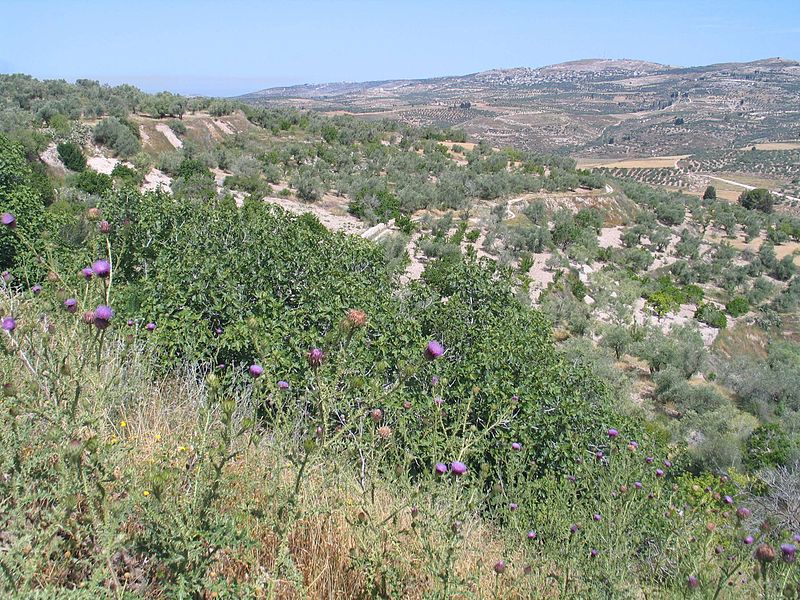13 Sept. King Omri of Israel builds a new capital at Samaria
“Omri became king of Israel during the thirty-first year Asa was king of Judah. Omri ruled Israel for twelve years, six of those years in the city of Tirzah.”
“He bought the hill of Samaria from Shemer for about 6,000 pieces of silver. Omri built a city on that hill and called it Samaria after the name of its earlier owner, Shemer.”
“But Omri did what the LORD said was wrong; he did more evil than all the kings who came before him. Jeroboam son of Nebat had led the people of Israel to sin, and Omri sinned in the same way as Jeroboam.”
“The Israelites made the LORD, the God of Israel, very angry because they worshipped worthless idols.”
“Everything else Omri did and all his successes are written in the book of the history of the kings of Israel.”
“So Omri died and was buried in Samaria, and his son Ahab became king in his place.”
(1 Kings 16:23-28)

We’re not told much about King Omri of Israel in the Bible – we’ll learn far more shortly about his infamous son Ahab, together with Ahab’s notorious wife Jezebel.
But what we are told about Omri makes sad reading. Following his predecessor Jeroboam, Omri turned the people of Israel away from the LORD. According to the author of the First Book of Kings, “he did more evil than all the kings who came before him.” (1 Kings 16:25) We’re not given all the details, but presumably he promoted the worship of the golden calves at Dan and Bethel (1 Kings 12:29) as well as worshipping other “worthless idols” of Baal and Asherah (1 Kings 18:26).
Apart from his evil deeds, the most significant thing Omri achieved during his reign as king of Israel was the building of a new capital city at Samaria.
Samaria (meaning ‘a watch-tower’) was built at Shomron (the ‘hill of Shemer’), an isolated summit with a long flat top and steep sides in the central hill country. The capital of the northern kingdom of Israel was transferred here from Tirzah in c.881BC (see 1 Kings 16:24).
Although Samaria was well fortified, it was attacked on many occasions. In c.857BC, for example, King Ben-Hadad III of Aram (Damascus) laid siege to the city, but the following year he was defeated by King Ahab near Aphek (see 1 Kings 20:1-34). A few years later, Ben-Hadad besieged Samaria again. The resulting famine was so severe that a loaf of bread could only be bought for a bag of silver, and the inhabitants resorted to killing their own children for food (see 2 Kings 6:24-29 & 7:1).
In 724BC, King Shalmaneser V of Assyria laid siege to Samaria for three years. The city eventually fell, and the defeated Israelites were led into exile in Assyria in 721BC (see 2 Kings 17:3-6). The region was re-settled by people from Babylon and Assyria, who intermarried with the few remaining Israelites to become the Samaritan people who inhabited the area during New Testament times (see 2 Kings 17:24-34).
The photo (by Bukvoed) shows the site of Samaria in Shomron National Park.
You can read more about Samaria @ https://www.thebiblejourney.org/biblejourney2/32-the-divided-kingdom-amp-journey-into-exile/israel-descends-into-civil-war/
